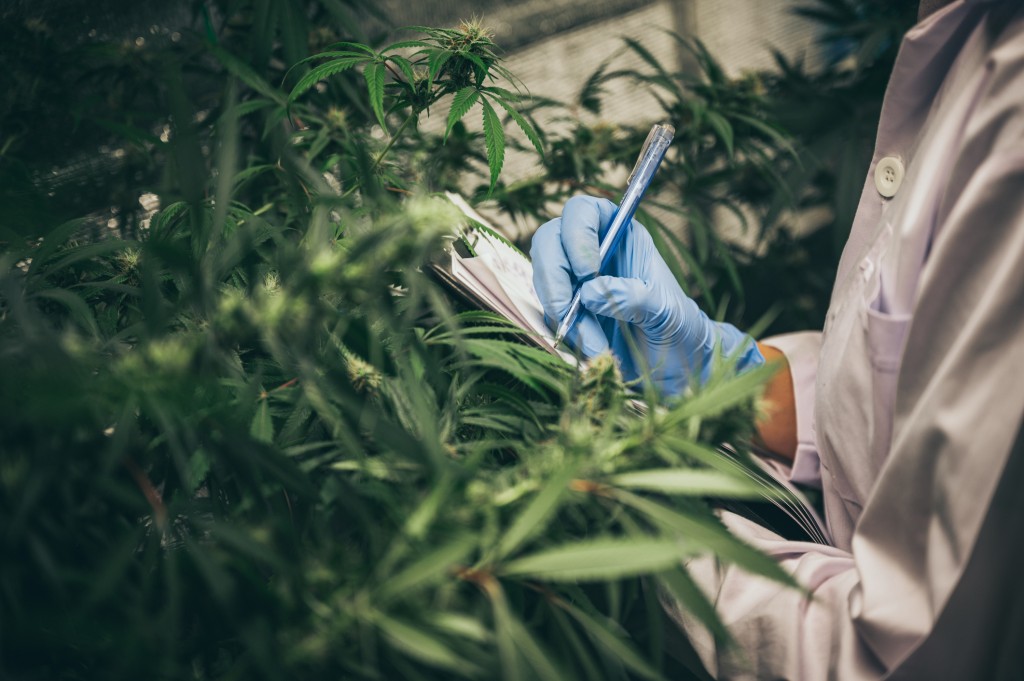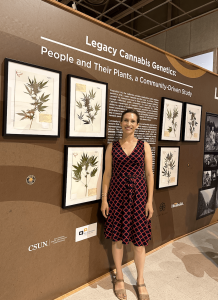CSUN Professor Co-Principal Investigator on Cannabis Research Grant

CSUN professor Rachel Giraudo is on a multidisciplinary team researching the history of cannabis in California. Photo by greenleaf123, iStock
The history of cannabis cultivation is an extensive one, often untold, unexplored, and unheard. California State University, Northridge anthropology professor, Rachel Giraudo, is on a multidisciplinary team trying to rectify that.
Giraudo, is part of the two-year-effort, “Legacy Cannabis Genetics: People and Their Plants, a Community-Driven Study,” to document the genetic history of cannabis in California. The research is being funded by a grant of nearly $2.7 million, which the team was recently awarded from the California Department of Cannabis Control.
“What makes this project’s methodology stand out is its focus on community-based participatory research (CBPR), an equity-focused method of gathering data that allows community members, organizational representatives, and academic researchers to participate in the research process,” Giraudo said “Community members can take part in determining research design, collecting research data, and interpreting and communicating research results.”
Prioritizing CBPR, the team plans to establish a community advisory board made up of representatives with legacy genetics expertise from eight study areas. Giraudo said her role in the project as an anthropologist is focused around developing a model of CBPR that can be used for future research as well.
“What’s really exciting to me is getting to work more equitably with communities,” said Giraudo. “In this case, I’m working directly with farmers and cultivators in determining what questions we’re going to ask and to ensure that our research doesn’t just benefit the ivory tower of academics or policy makers.”

Professor Rachel Giraudo in front of a preliminary presentation of team’s work, prepared for sharing at the state fair.
Community partners include Origins Council, a California nonprofit education, research, and public advocacy organization that serves California’s historic rural cannabis farming regions, and the Cannabis Equity Policy Council, a statewide equity advocacy organization that represents the interests of Black, Indigenous, and people of color in urban communities to help increase their inclusion in the cannabis industry.
The research team also includes Principle Investigator Dominic Corva, an assistant professor of sociology and program leader of the Cannabis studies major at California State Polytechnic University, Humboldt; Co-Principle Investigator Genine Coleman, executive director of Origins Council; Todd Holmes, a historian with the Oral History Center at the Bancroft Library, University of California, Berkeley; and Eleanor Kuntz, co-founder of Canndor the world’s first cannabis herbarium and co-founder and CEO of LeafWorks, a genomics and plant science company.
The researchers hope to develop a special collection in Canndor Herbarium; collect cannabis genomics data and oral histories; conduct ethnographic interviews; host a series of educational webinars and create publications that include intellectual property tools for genetics resources; develop a suite of research-based public policy recommendations; and facilitate advancement towards research-based, community-driven consensus on the definition of legacy cannabis.
“The biodiversity of California’s cannabis is under threat, and so are the communities who pioneered cannabis plant breeding over the past several decades,” said Giraudo. “This research helps to identify these plants and communities and helps to protect and preserve their heritage.”
For updates on the team’s progress visit, https://www.legacycannabis.org.

 experience
experience